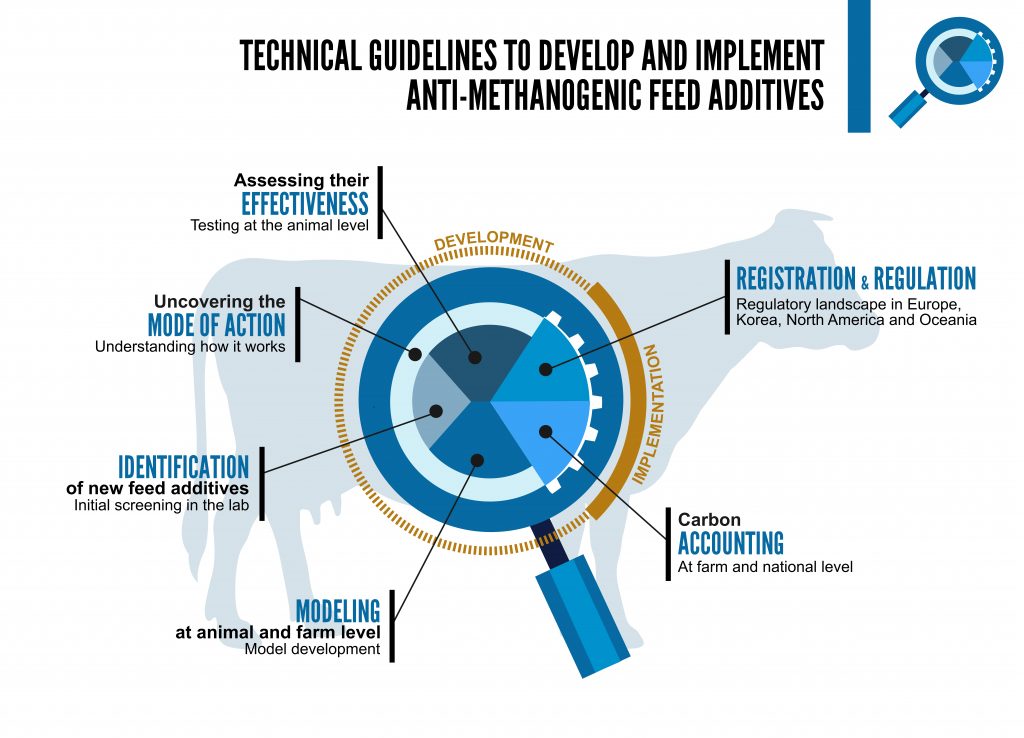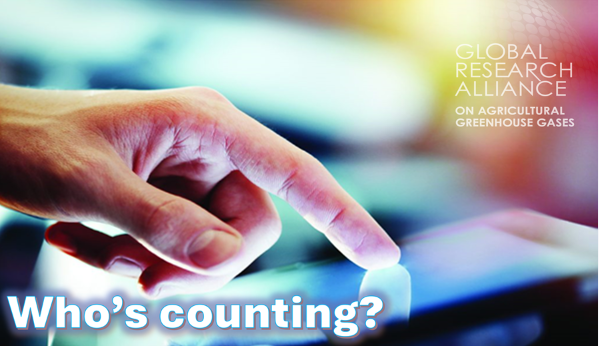The Foundation for Food & Agriculture Research (FFAR) is an independent nonprofit established by Congress to support innovative science addressing today’s food and agriculture challenges and complement the research mission of the U.S. Department of Agriculture. FFAR was created in the 2014 Farm Bill as a mechanism to spur innovation in food and agriculture research by forming unique public-private partnerships.
FFAR invites experts across the agricultural sciences to review grant proposals within topic areas according to their expertise. We are currently recruiting peer reviewers for the 2025 New Innovator Award, which provides early career scientists the investment needed to propel them into successful research careers.
The success of the peer review process depends on the willingness of qualified reviewers like you to share your time and expertise. You will be asked to review up to five (5) proposals in April – May 2025. In appreciation for completing the reviews, an honorarium will be provided to eligible, non-government employees.
To participate and receive more information, please complete the following 2-minute survey by February 28, 2025 to confirm that we can count on you to make this review process successful. We hope you consider this opportunity to work with FFAR as we strive to support innovative agricultural research.
Click here to complete the survey
If you are unable to review for FFAR at this time, please consider nominating other experts who may serve as potential reviewers. Thank you in advance for your support, and we look forward to hearing from you!
For more information regarding the New Innovator Award program, please contact Dr. LaKisha Odom at [email protected]. For any questions related to the peer review process, please contact Samar Ahmed at [email protected].
Sincerely,
FFAR Scientific Program Staff
The Global Research Alliance on Agricultural Greenhouse Gases (GRA) is pleased to welcome Ireland as the new Chair of the Alliance. Through its Department of Agriculture, Food and the Marine (DAFM), Ireland will lead the GRA’s efforts to advance international collaboration on agricultural greenhouse gas research and mitigation.
A long-standing and active member since joining in 2009, Ireland has demonstrated strong leadership and commitment to science-based solutions for reducing emissions in agriculture. As Chair, Ireland aims to further strengthen partnerships, drive innovation, and support global efforts to enhance resilient and secure food systems.
For more details, please read the official press release from Ireland’s Department of Agriculture, Food and the Marine HERE.
Global Research Alliance Feed Additives Flagship Project Unveils Comprehensive Technical Guidelines in a Special Issue of the Journal of Dairy Science
Highlights and good resolutions from the Rumen Microbial Genomics Network can be viewed HERE.
Working as a team player within the Carbon Storage Partnership (https://www.utas.edu.au/tia/research/research-projects/project/livestock-production/carbon-storage-partnership), the candidate will examine the nexus between climate change adaptation and greenhouse gas (GHG) emissions mitigation. This will include co-development of practices, technologies and skills to elicit co-benefits and trade-offs associated with carbon dioxide removal (CDR), GHG mitigation and adaptation of the livestock and broadacre cropping sectors to the changing climate. Analyses may include, for example, costs associated with transitioning to net-zero emissions, temporal simulation of spatially-explicit carbon in vegetation and soils, productivity co-benefits caused by various interventions and pollution swapping, where increases in one GHG offset reductions in another e.g. Carbon Myopia.
Climate change adaptation assessments will be conducted at multiple scales, and may include economic, environmental and social implications of the changing climate for food security and environmental stewardship.
While much of the PhD will be desk-based, the candidate will be expected to be a team player, including co-design in consultation with stakeholders and other researchers within the consortium. This may require domestic and international travel from time to time.
Funding
The successful applicant will receive a scholarship which provides:
- A living allowance stipend of $AU33,511 per annum (2025 rate, indexed annually) for 3.5 years
- a relocation allowance of up to $AU2,000
- Tuition fees offset covering the cost of tuition fees for up to four years (domestic applicants only)
- If successful, international applicants will receive a University of Tasmania Fees Offset for up to four years.
Further information
https://www.utas.edu.au/research/degrees/available-projects/projects/tasmanian-institute-of-agriculture/carbon-myopia/_nocache
The GRA Feed Additives Flagship Project is holding a webinar in 2025. Stay tuned for updates!
Flagship Goal: To accelerate the development and use of feed additives to reduce global enteric methane emissions from livestock.

COP29 has come to a close, and as always, it was a huge undertaking for those involved. For some it was successful, while others felt it fell short of achieving anything substantial. We have summarised some of the key takeaways from COP29, as well as provided some links to other articles.
For the Post COP Update, click HERE.
- Prospective leaders and postdocs with climate expertise
- Non-European developing and transition countries
- 12–24-month research project in Germany
- Application deadline: 1 February 2025
Fellowship for prospective leaders working practically and postdocs
Are you working academically or practically in climate protection or climate-relevant resource conservation in your country of origin – a non-European developing or transition country (see list of countries)? Then we invite you to apply for an International Climate Protection Fellowship from the Alexander von Humboldt Foundation.
The fellowship facilitates the mutual exchange of knowledge, methods and techniques with hosts in Germany.
For more information, click HERE.
Abstract submission deadline: January 12, 2025

Dates for the conference are October 5-9, 2025.
At the 9TH GGAA, you’ll have the chance to delve into cutting-edge research, connect with experts and participate in lively discussions covering GHG mitigation, measurement techniques, advanced modelling, and on-farm practices. You’ll get to discover insights into policies addressing agricultural impacts on GHGs and stay updated on the latest scientific developments. There will also be field visits you can join to national parks, farms, and rangeland sites, including ILRI’s Kapiti Conservancy and Research Station on the outskirts of Nairobi.
For more information see here
The August 2024 issue of Who’s Counting, the Inventories and Nationally Determined Contributions (NDC) Network Newsletter is now available to view HERE.

Who’s Counting summarises scientific progress, opportunities, resources and events related to national agriculture inventory development, national agriculture climate targets, and international inventory capability-building activities.
We encourage you to directly submit content for the next Issue of Who’s Counting.
Previous newsletters are available HERE.
The Climate and Clean Air Coalition, a Partner in the Global Research Alliance (GRA), is producing a comprehensive integrated assessment on greenhouse gas emissions and short-lived climate pollutants (SCLP) from the Agricultural and Food sector. The report, to be presented at COP 30 in Brazil, will develop national scale SLCP and GHG emission scenarios for 2050. These will explore ‘emission pathways’ comprising combinations of policies and mitigation measures designed to reduce emissions through e.g. changes in national diets, livestock and crop production technologies and practices, and from improvements in food waste management. The attached presentation further outlines the approach being taken.
To help develop these future ‘emission pathway’ scenarios the Agricultural and Food report is using the ADOPT model, developed by CSIRO in Australia. ADOPT is designed to provide a quantitative estimate of peak adoption rates and time to peak adoption of mitigation measures based on the characteristics of the farming population implementing these measures and of the measures themselves.
To help ensure that as far as is possible the data used in the modelling reflects the experience of practitioners working across the globe, the CCAC is consulting on the predicted peak adoption and time to peak adoption values. This consultation will comprise a survey in which participants are asked to provide their answers to a selection of ADOPT questions for a subset of the >100 mitigation measures being considered in the report.
The survey, which is open until December 16th, 2024, can be accessed HERE. It can be completed by phone or PC.
Could you please also distribute the survey to your networks – the more respondents, the more robust the mitigation assumptions will be.
The Systems Microbiology & Natural Products Laboratory (www.HessLab.com ) at UC Davis will be hiring several additional postdocs in the next 12 months.
The new hires will work on different aspects of rumen microbiology with emphasis on:
• isolation, cultivation and metabolic engineering of methanogens and acetogens
• hydrogen and carbon flow during anaerobic digestion/fermentation
• rumen fungi
Feel free to share this with potential candidates. Start dates are negotiable – opening great opportunities for students who are graduating in the next 12 months.
Potential candidates can reach out directly to Dr. Matthias Hess ([email protected] ) or his lab manager Dr. Saumya Wickramasinghe ([email protected] ).
